
February 9

1650 (Exact Date Unknown): Polish artillery expert, Kazimierz Siemienowicz, publishes a series of drawings illustrating a multi-staged rocket. (Chase, Burrows) [See: Wunderwaffen: Hitler's Deception and the History of Rocketry.]
1846 Birth: Auto pioneer Wilhelm Maybach, in Heilbronn, Germany:
Automotive industry pioneer Wilhelm Maybach, who founded the luxury car brand bearing his name, is born on February 9, 1846, in Heilbronn, Germany.
In 1885, Maybach and his mentor, the German engineer Gottlieb Daimler (1834-1900), developed a new high-speed, four-stroke internal combustion engine. (Nikolaus Otto is credited with inventing the first functioning four-stroke engine.) Maybach and Daimler fixed their engine to a bicycle to create what is referred to as the first-ever motorcycle. The two men later attached their engine to a carriage, producing a motorized vehicle. In 1890, Daimler and several partners established Daimler Motoren Gelleschaft (Daimler Motor Company) to build engines and automobiles. Maybach, who served as the company's chief designer, developed the first Mercedes automobile in 1900. The Mercedes was commissioned by auto dealer and racer Emil Jellinek, who wanted a new car to sell to his rich clients in the French Riviera, and named after Jellinek's daughter.
Gottlieb Daimler died in March 1900 and Maybach left the Daimler company in 1907. He later went into business with his engineer son Karl (1879-1960) and in 1921 they debuted their first car, the Maybach Type W3, at a Berlin auto show. During the 1920s and 1930s, Maybach became known for developing powerful, technologically sophisticated custom-built vehicles for the wealthy, including the super-luxurious, top-of-the-line Zeppelin model. Wilhelm Maybach died on December 29, 1929, at the age of 83.
During World War II, the company Maybach founded stopped making cars and built engines for German military vehicles. Auto production never resumed after the war, although the company continued to make engines for a variety of vehicles and eventually became part of Daimler-Benz. In the early 2000s, Daimler-Benz resurrected the Maybach nameplate, launching the Maybach 57 and the Maybach 62 (the numbers represent each vehicle's length: 5.7 meters and 6.2 meters). Today, the Maybach brand is once again synonymous with opulence and exclusivity. Each car is hand-built to its buyer's specifications and carries a starting price tag in the six-figure range. Maybachs are known for their power and long list of optional luxury extras, including voice-activated controls, entertainment centers, lambswool carpeting and perfume-atomizing systems. (History.com)

1881 On War: Count Helmuth von Moltke—German Fieldmarshal—declares this day: "I hold that war is the last, but wholly legitimate, means by which the state maintains its existence, independence, and honor."
1909 Morocco: France and Germany reach agreement, with Germany recognizing French special interests there in return for economic concessions.
Thus Germany had, apparently, conceded the fundamental point‑‑the political interests of France‑‑which she had refused to recognize in 1905. The Act of Algeciras was virtually superseded. But the German policy was not understood in French circles. To the Germans the important feature of the convention of 1909 was the pledge to associate Frenchmen and Germans in affairs for which they might obtain concessions. 1910 Adolf Hitler in Vienna: Since the hostel at Meidling (in Vienna) only allows for temporary residence, Adolf Hitler is forced to find more permanent lodgings. He succeeds in securing quarters at the Mannerheim, a home for single men, for 50 Heller a night. The Mannerheim, partially funded by charitable donations—including the Rothschild family—allows a little more privacy to the residents, and Hitler acquires his own cubicle. There are also laundry facilities, a canteen, a library and reading room, and even a ’workroom.’ Hitler becomes a regular in the workroom, joining a small group known as the ’intellectuals.’ Unlike the majority of the residents, the members of this group don’t leave the Mannerheim to do manual labor during the day, but inhabit the work room, writing or, like Hitler, painting or drawing (example above). [For further details, Click here.] 1915 World War I: War at Sea: President Wilson warns Germany that the US will hold it 'to a strict accountability' for 'property damaged or lives lost.' German submarine warfare is taking a heavy toll on neutral shipping, including American. Note: U-boat captains are in a difficult position because they cannot safely surface to allow enemy crews to board liferafts before being sunk. The fragile U-boats themselves are easily sunk by small-caliber deck guns.
1916 World War I: Conscription begins in UK, as the Military Service Act becomes effective:
Every British male subject who, on 15 August 1915 was ordinarily resident in Great Britain and, who had attained the age of 19 but was not yet 41 and, on 2 November 1915 was unmarried or a widower without dependent children, unless he met certain exceptions or had met the age of 41 before the appointed date, was deemed to have enlisted for general service.
1918 World War I: Various: is organized at Fort Monroe, Virginia.
Russia: Bukharin leads the so-called Left Communist opposition to the Treaty of Brest-Litovsk, which he says is a betrayal of the quest for international socialist revolution. Note: He will later accept Lenin's policies.
Ukraine signs a peace treaty with the Central Powers:
The first peace treaty of World War I is signed when the newly declared independent state of Ukraine officially comes to terms with the Central Powers at 2 a.m. in Berlin, Germany, on this day in 1918.
In the treaty, the Central Powers, which included the governments of Austria-Hungary, Bulgaria, Germany and Turkey, formally recognized the independence of Ukraine from Russia. The Central Powers also agreed to provide military assistance and protection from the Bolshevik forces of Russia that were occupying Ukrainian territory. In exchange, the Ukrainian National Republic would provide 100 million tons of food rations to Germany.
Ukraine's journey toward a period of independence—brief as it proved to be—began shortly after the collapse of the Russian monarchy in March 1917. Led by Premier Vladimir Vinnichenko and War Minister Simon Petlura, Ukrainian political leaders declared the country a republic within Russia. However, after the Bolshevik Revolution, in which the post-monarchy provisional Russian government was overthrown, Vinnichenko proclaimed the complete independence of Ukraine in January 1918.
Bolshevik forces were sent to regain the Ukrainian territory, but after the peace treaty between the Ukraine and the Central Powers was signed, the Russians were forced out by German troops. Within one month of the peace treaty, Russia formally recognized the independence of Ukraine as part of the Treaty of Brest-Litovsk it signed with the Central Powers on March 3, 1918. In 1919, though, during the Russian Civil War, the Soviet Union regained the Ukrainian territory and Ukraine became one of the original republics of the Union of Soviet Socialist Republics (USSR). (History.com)
1922 Various: USA: Italy: The Italian government of Bonomi falls.
1923 Dobrolet—the Soviet state airline—is formed. It will be renamed Aeroflot in 1932. 1924 Nakhichevan ASSR is constituted within Azerbaijan SSR. 1925 Various: opens in Israel. (THP)
Weimar: German Minister Stresemann proposes a security treaty with France: Peace between France and Germany is not merely a Franco-German but a European affair. The last world War in my opinion produced no victors who could rejoice in their victory. The War, and the continuation of the War by other means, were responsible for social, political, and economic upheavals in Europe which have directly confronted the older civilized nations with the question of their future material existence.
1929 The Litvinov protocol—a pact for the renunciation of war—is signed in Moscow between Russia, Poland, Romania, Estonia and Latvia; this was seen as an 'Eastern Kellogg-Briand Pact'. 1934 The Balkan Pact—to prevent encroachment by the great powers—is signed by Romania, Greece, Yugoslavia and Turkey. The signatories agreed to suspend all disputed territorial claims against each other and their immediate neighbors following the aftermath of the First World War and a rise in various regional ethnic minority tensions. Other nations in the region that had been involved in related diplomacy refused to sign the document, including Italy, Albania, Bulgaria, Hungary, and the Soviet Union. Non-signatories were mostly those governments with territorial expansion in mind. The Balkan Pact helped to ensure peace between Turkey and the independent countries in southeastern Europe that had been part of the Ottoman Empire, most importantly Greece, but failed to stem regional intrigue that encouraged military intervention by Germany, Britain, and the Soviet Union during the Second World War.
1935 Poland: Jean Szembeck, Undersecretary for Foreign Affairs, tells Foreign Minister Josef Beck that Lipski told him Hermann Goering and his generals are developing great plans for the future, suggesting almost a German-Polish alliance against Soviet Russia. (THP) 1937 Church and Reich: Nazi officials close all Catholic schools in Bavaria. (THP) 1938 Romania: The Goga government is dissolved. The new government, headed by Dr. Miron Christea, nullifies some of Goga's anti-Jewish legislation. (THP) 1939 Various: Church and Reich:
A prominent French cardinal, Eugene Cardinal Tisserant, made a sensational claim in his personal diary. The Pope had been scheduled to deliver a blunt strongly worded address attacking fascism and anti-Semitism on February 11. According to Tisserant, twenty-four hours before delivering this address, the Pope was given an injection by Dr. Francesco Petacci, who worked as the medical practitioner for the Vatican, and whose daughter was the long-term mistress of the fascist dictator Benito Mussolini. As a result of the injection, the Pope supposedly died hours before delivering his historic attack on Mussolini and European fascism. While it is known that the Pope was planning to deliver a major attack on fascism in a speech to cardinals, and the text of the speech disappeared after his death, the claim that he was killed by [the father of Mussolini's mistress], to stop him attacking fascism in general, and Mussolini, in particular is not widely believed.
World War II: Hitler addresses his Generals:
I have taken it upon myself to solve the German problem; the German living space problem. Take good note of that; as long as I live, this ideal will govern my every action. Take heed too: the moment I believe that I can make a killing, I'll always strike immediately and I won't hesitate to go to the very brink. Because I'm convinced this problem has to be solved, one way or the other. I'll never shrug my shoulders and say: "Oh dear! I'll leave that for [whoever] comes after me. [For the full text, Click here.]
World War II: Belgium: The Spaak government falls. (THP) 1940 Poland: First of four mass deportations of Poles to Siberia: About 220,000 civil servants, government officials, police, small farmers and forest workers are taken. (THP) 1941 World War II: Various: North Africa: Winston Churchill, in a speech directed at achieving the support of the United States, declares:
Here is the answer which I will give to President Roosevelt . . . . We shall not fail or falter; we shall not weaken or tire. Neither the sudden shock of battle nor the long-drawn trials of vigilance and exertion will wear us down. Give us the tools and we will finish the job.
Holocaust: Netherlands: Nazi collaborators destroy a pro-Jewish cafe called Alcazar, in Amsterdam for refusing to hang 'No Entry for Jews' signs in front of the cafe. (THP
1942 World War II: Various: The Normandie
Built in France in the early 1930s, the Normandie ruled the transatlantic passenger trade in its day. The first major liner to cross the Atlantic in less than four days, its masterful engineering was only surpassed by its design excellence. The 1,000-foot ship's distinctive clipper-ship bow was immediately recognizable, and its elaborate architecture and decorations popularized the Moderne style. After the American entrance into World War II, it was seized by the U.S. Navy for the Allied war effort and renamed the U.S.S. Lafayette. However, on February 9, 1942‑‑just days before it was to be completed for trooping‑‑a welder accidentally set fire to a pile of flammable life preservers with his torch, and by early the next morning the ship lay capsized in the harbor, a gutted wreck. It was later towed south to New Jersey and scrapped. (History.com)
UK: Soap goes on ration for the first time.
Chiang Kai-shek meets with Sir Stafford Cripps, the British viceroy in India: War in the Pacific: Japanese troops land near Makassar, South Celebes. Daylight saving time is instituted in USA:
On this day, Congress pushes ahead standard time for the United States by one hour in each time zone, imposing daylight saving time: called at the time "war time." Daylight saving time, suggested by President Roosevelt, was imposed to conserve fuel, and could be traced back to World War I, when Congress imposed one standard time on the United States to enable the country to better utilize resources, following the European model. The 1918 Standard Time Act was meant to be in effect for only seven months of the year, and was discontinued nationally after the war. But individual states continued to turn clocks ahead one hour in spring and back one hour in fall. The World War II legislation imposed daylight saving time for the entire nation for the entire year. It was repealed Sept. 30, 1945, when individual states once again imposed their own "standard" time. It was not until 1966 that Congress passed legislation setting a standard time that permanently superseded local habits. (History.com)
1943 World War II: USA: FDR orders a minimum 48 hour work week in the war industries.
1944 World War II: War at Sea: German U-boats U-734 and U-238 are sunk off Ireland by HMS Magpie and other British ships. 1945 World War II: Various:
WAAF: Yalta Conference: In a meeting of the Foreign Ministers, US Secretary of State Stettinius accepts the Soviet position that the countries who bore the heaviest burdens of the war are entitled to the first priority concerning reparations to be extracted from Germany. Molotov is delighted when Stettinius further accepts the USSR's figure of $20 billion in reparations, half of which should go to the Soviet Union. Eden, however, objects, saying that an Allied Reparations Commission should be set up in Moscow to crunch the numbers. (Harriman) Operation Hannibal: The Steuben, evacuating between 3,000 and 4,000 military personnel and civilians to Swinemuende, is sunk by S-13, just after midnight; only 300 survive. Note: The German troopship Wilhelm Gustloff had been sunk by the S-13 on January 30. (Sellwood) Last Days: Hitler's architect, Hermann Giesler, finishes a scale model of a completely redesigned Linz, Hitler's 'home town.' Set up in the cellar of the Reich Chancellery, Hitler will visit the model twice daily accompanied by Giesler, who stays in Berlin. He will spend hours daydreaming of a redesigned city that will never be constructed, as all of Germany falls into ruins around him. Note: He may as well have taken up the lyre. (Kershaw) [See: The Last Days of the Third Reich.] Yalta Conference: Near the end of this day's session, Stalin inquires about Hess. An annoyed Churchill replies that 'events would catch up with Hess.' Churchill, in complete contrast to the Soviets, does not at this point any longer consider Hess a major war criminal. He tells Stalin that Hess and the rest of 'these men should be given a judicial trial.' (Taylor) The next major event was the Yalta conference . . . . It was the least successful of the wartime summits for the essential reason that the only cement which held together the Big Three, the need to defeat the massive German military machine, was rapidly losing its adhesive power. Many previous features were present, together with a few new ones, of which the most obvious was the manifest decline in health and mental power of Roosevelt . . . . There was one other remark made at Yalta . . . Roosevelt's almost casual statement at the first plenary session that the 'United States would take all reasonable steps to preserve peace, but not at the expense of keeping a large army indefinitely in Europe, 3,000 miles away from home. That was why the American occupation was limited to two years.' 1946 Nuremberg Tribunal: A new high in cynicism occurs as Soviet Assistant Prosecutor Colonel Pokrovsky delivers his Opening Statement. It must be stated in all fairness that this war was a surprise for Poland only. The fascist conspirators had, for a long time, carefully prepared for it. [For the full text of today's proceedings, Click here.] Von Schirach's attitude of remorse before the trial has completely disappeared since he came under Goering's influence again in the first weeks of the trial. The essential moral weakness of this narcissist has been clearly shown in the manner in which he has subdued his indignation at the "betrayal" of German Youth by Hitler, under the influence of Goering's aggressive cynicism, nationalism, and pose of romantic heroism . . . . His original intention to write a denunciation of "Hitler's betrayal" to leave behind with me after he is executed, fizzled out, in spite of efforts by Major Kelly (the psychiatrist) and myself to encourage him to write it. He has acted as Goering's messenger to lay down the "Party Line" to recalcitrant defendants like Speer . . . . After yesterday's argument in which Goering impatiently attacked both Fritzsche and von Schirach as "young weaklings" while he was by implication a more heroic nationalist, I decided the time was ripe to make another attempt to draw out von Schirach. (Taylor) Yesterday, Friday, opened the Russian case. General Rudenko made his statement and the Russian photographers were all over the place. It lasted most of the day and about 4 o'clock the Russkies began presenting evidence. I conferred with the Justice about segregating Goering from the other defendants for he is browbeating and threatening them—and particularly those who might admit some guilt. He wants all to hang together—and to prove that Roosevelt was the cause of the war! Well, we will take care of that defense all right but I do not think he is entitled to go on intimidating people as he has done for much of his life. 1950 McCarthyism: Communists are in the State Department:
During a speech in Wheeling, West Virginia, Senator Joseph McCarthy (Republican-Wisconsin) claims that he has a list with the names of over 200 members of the Department of State that are "known communists." The speech vaulted McCarthy to national prominence and sparked a nationwide hysteria about subversives in the American government . . . .
Senator McCarthy waved before his audience a piece of paper. According to the only published newspaper account of the speech, McCarthy said that, "I have here in my hand a list of 205 [State Department employees] that were known to the Secretary of State as being members of the Communist Party and who nevertheless are still working and shaping the policy of the State Department." In the next few weeks, the number fluctuated wildly, with McCarthy stating at various times that there were 57, or 81, or 10 communists in the Department of State. In fact, McCarthy never produced any solid evidence that there was even one communist in the State Department.
Despite McCarthy's inconsistency, his refusal to provide any of the names of the "known communists," and his inability to produce any coherent or reasonable evidence, his charges struck a chord with the American people. The months leading up to his February speech had been trying ones for America's Cold War policies. China had fallen to a communist revolution. The Soviets had detonated an atomic device. McCarthy's wild charges provided a ready explanation for these foreign policy disasters: communist subversives were working within the very bowels of the American government.
To be sure, McCarthy was not the first to incite anxiety about subversive communists. Congress had already investigated Hollywood for its supposed communist influences, and former State Department employee Alger Hiss was convicted of perjury in January 1950 for testimony dealing with accusations that he spied for the Soviet Union during the 1930s. But McCarthy went a step further, claiming that the U.S. government, and the Department of State in particular, knew that communists were working in their midst.
"McCarthyism," as the hunt for communists in the United States came to be known during the 1950s, did untold damage to many people's lives and careers, had a muzzling effect on domestic debate on Cold War issues, and managed to scare millions of Americans. McCarthy, however, located no communists and his personal power collapsed in 1954 when he accused the Army of coddling known communists. Televised hearings of his investigation into the U.S. Army let the American people see his bullying tactics and lack of credibility in full view for the first time, and he quickly lost support. The U.S. Senate censured him shortly thereafter and he died in 1957. (History.com)
1963 Death: Abd al-Karim Qasim: Iraqi Prime Minister, shot after a snap tribunal:
Qasim's five-year run as Iraq's Prime Minister marks that country's transition from the British-installed Hashemite monarchy to the secular dictatorship that persisted until America's 2003 invasion. It was the heyday of postcolonialism, of the Cold War, of pan-Arab strivings: a political topography of the Middle East that seems unrecognizably different from the distance of a half-century's evolution.
And yet . . . not so alien after all. For superpower intervention and oil politics were already defining and demarcating the oil-rich nation's choices. Qasim had come to power in a coup of his own, a recognizable exemplar of the young Turks genre: in 1958, a cadre of energetic young officers virtually without resistance disposed of the unwelcome royal family and seized the helm of the state. Contention among interest blocs within Iraq and without during the Qasim years, leading the coup's author to this day's fate, is too complex for a full examination in this space. Of greatest moment was the nationalist officer's alliance with the robust Iraqi Communist Party against the youthful Ba'ath party, a marriage of convenience not supported by all his cohorts.
Qasim himself was not a communist, but the arrangement of players that made this partnership expedient tended to drive Iraq out of the American orbit‑‑out, for instance, of the anti-Soviet Baghdad Pact‑‑and towards that of the Soviet Union.
Qasim partly nationalized the oil industry‑‑that job would be completed by a successor‑‑and hosted the meetings where OPEC was born. He threatened to annex Kuwait.
Washington looked askance at these developments, and it was well before 1963 that it took steps to abort them. Early in 1959, Qasim survived a coup attempt. Later that same year, a CIA asset botched an assassination attempt.
The 22-year-old would-be assassin escaped the country and laid up in American safehouses abroad, but young Saddam Hussein would have a part to play yet in his country's future: and he would return to play it because on this date, the Agency got its man.
2001 Pearl Harbor:
Scott Waddle was the commander of the Greenville, a 7,000-ton nuclear submarine. As part of the Distinguished Visitor program, 16 civilians were on board the sub on the morning of February 9. The last maneuver that was to be shown to the VIPs was the Emergency Ballast Tank Blow that brings the submarine to the surface very quickly.
It was at this point that proper procedures broke down completely. Commander Waddle gave orders that could not be completed properly in the time assigned. Appropriate sonar and periscope sweeps to determine the safety of surfacing were not completed. In addition, the crew failed to communicate its intentions properly in part because civilians were sitting at the sub controls. It also failed to notice that the Ehime Maru, a Japanese fishing vessel, was above them on the surface.
The Greenville's rudder sliced right through the Ehime Maru's engine room as it rose to the surface. The fishing boat, used as a training vessel for high school students, was damaged so severely that it sank within 10 minutes. Nine people, including four students, drowned. A week later, the boat was found resting on the ocean floor 2,000 feet below the surface and was carried (still underwater) closer to the island of Oahu for salvage operations. Divers recovered eight bodies in October and, later, a memorial was established at Kakaako Park in Honolulu.
Despite the failures of Commander Waddle, Navy administrators did not pursue a court-martial. Waddle received only a reprimand and was allowed to keep his rank and pension.
Click to join 3rdReichStudies FAIR USE NOTICE: This site may contain copyrighted material the use of which has not always been specifically authorized by the copyright owner. We are making such material available in our efforts to advance understanding of historical, political, human rights, economic, democracy, scientific, environmental, and social justice issues, etc. We believe this constitutes a 'fair use' of any such copyrighted material as provided for in section 107 of the US Copyright Law. In accordance with Title 17 U.S.C. Section 107, the material on this site is distributed without profit to those who have expressed a prior interest in receiving the included information for research and educational purposes. If you wish to use copyrighted material from this site for purposes of your own that go beyond 'fair use', you must obtain permission from the copyright owner. Please note that the list-owner and the moderator are not responsible for, and do not necessarily approve of, the random ads placed on our pages by our web server. They are, unfortunately, the price one pays for a 'free' website.

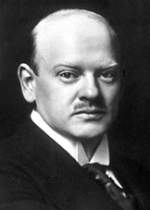
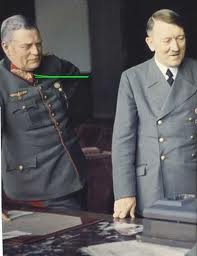
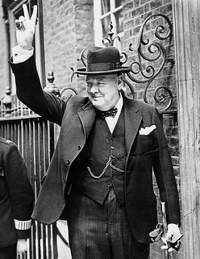
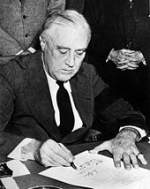
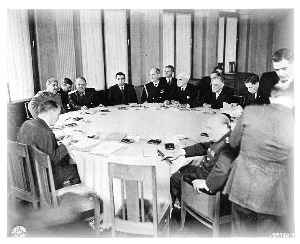


Churchill's immediate reaction was to redouble his (successful) efforts to get France not only given an occupation zone in Germany but also made a full member of the Allied Control Commission to administer the defeated enemy country. His doubts about de Gaulle, who he was thankful was not at Yalta, were as nothing compared with his fear of an exhausted Britain being left, with the Americans gone home, as the only Western powers trying to balance Russia across a devastated Germany. The French army again became necessary. 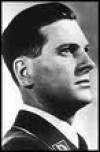

levi.bookin@gmail.com






